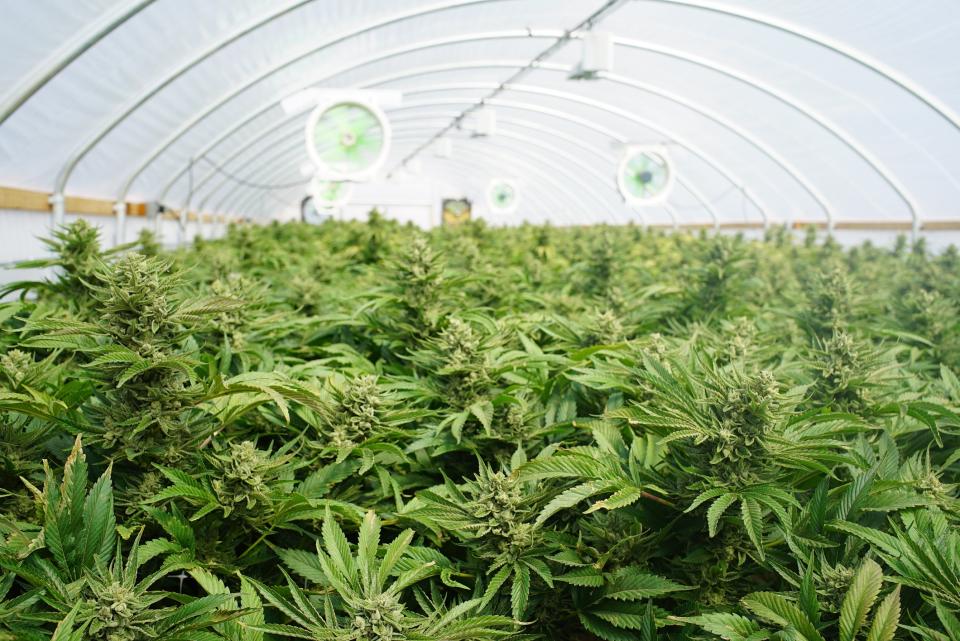My 2018 Prediction for the Canadian Cannabis Industry

Prediction: with legalization set to happen in 2018, Canadian cannabis companies, which are rushing to gain market share prior to the bull rush that?s expected to happen once marijuana is legalized, are likely to experience volatility moving into the end of 2017. I think they will see valuations depress in the coming quarters as the Canadian government extracts much of the value that shareholders expect producers to keep, shifting much of the value towards the government and retail channels and away from producers.
Here?s how I see the potential marijuana legalization process playing out for Canada?s largest cannabis producers: Canopy Growth Corp. (TSX:WEED), Aphria Inc. (TSX:APH), Aurora Cannabis Inc. (TSX:ACB), and Medreleaf Corp. (TSX:LEAF).
The most notable shift I see for the aforementioned leaders in Canadian cannabis production is a shift in how the ?profit pie? is divided among the various interests needed to make the whole legalization process work.
The Canadian government is unlikely, in my opinion, to legalize marijuana without extracting a significant amount of value to return to the government?s shareholder base (taxpayers), given the fact that the legalization debate in Canada has left a significant percentage of the voter base unhappy.
The lucrative nature of the cannabis industry, as seen in the tobacco and liquor industries in Canada, presents an opportunity for significant value extraction from the Canadian government and the retailers who will eventually sell the end product to consumers. Whether the existing methods of distribution will remain is a question which remains unanswered; however, I believe the Canadian government will give first priority to the various government-run liquor store monopolies in various provinces, and/or will hand out licences at a very high cost to pharmacies or licensed dispensaries, resulting in a tax on the end product which will be felt by consumers.
This tax (direct or indirect) is likely to result in the final retail price to be close to (or perhaps above) the current illicit street price, leading to a situation where cheap illicit product will seep through the cracks, resulting in further downward price pressure.
Increased consumer demand for cannabis will be somewhat offset by how low retailers will be allowed (by law) to retail their product and how well such retailers and distributors will be able to advertise to end consumers (also unclear).
While the supply side of the equation is likely to improve, as producers continue to find innovative ways to produce high-quality marijuana at lower prices (hopefully, without the use of pesticides), margins should improve somewhat for certain producers, resulting in further consolidation within the cannabis production industry. That said, the price retailers will be willing to pay, as a function of the taxation percentage ascribed to the finished product, may result in a situation where margins will actually deteriorate, as retailers will be forced to acquire the raw material at low prices due to taxes that stand to increase over time.
While the Canadian government may giveth (in the form of restricting the number of licences approved by Health Canada, creating a form of an oligopoly on the supply side, as seen in many other Canadian industries), the Canadian government has also shown its ability to taketh away via hefty taxation.
Stay Foolish, my friends.
You've probably never even heard of this up-and-coming e-commerce powerhouse headquartered in Eastern Ontario...
But, despite coming public just last year, it's already helping the likes of Budweiser... Tesla... Subway... and Red Bull move $9.9 BILLION (and counting) worth of goods online each year.
And now it's caught the eye of the legendary investor who got behind Amazon.com in 1997 -- just before it shot up over 23,000% and made investors like you and me rich beyond their wildest dreams.
Click here to discover why this investor says it's time to buy.
More reading
Why More Medical Marijuana IPOs Are Coming and Why You Should Avoid Them
A Safe Way to Play the Resurgence of Canadian Cannabis Stocks
Chris MacDonald has no position in any stocks mentioned in this article.
You've probably never even heard of this up-and-coming e-commerce powerhouse headquartered in Eastern Ontario...
But, despite coming public just last year, it's already helping the likes of Budweiser... Tesla... Subway... and Red Bull move $9.9 BILLION (and counting) worth of goods online each year.
And now it's caught the eye of the legendary investor who got behind Amazon.com in 1997 -- just before it shot up over 23,000% and made investors like you and me rich beyond their wildest dreams.
Click here to discover why this investor says it's time to buy.
Chris MacDonald has no position in any stocks mentioned in this article.

 Yahoo Finance
Yahoo Finance 